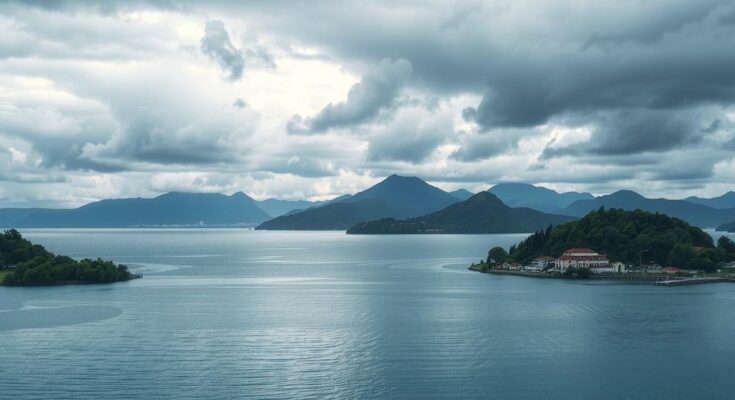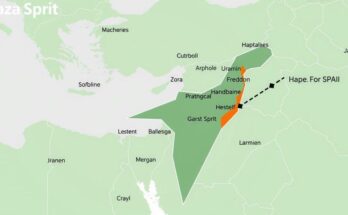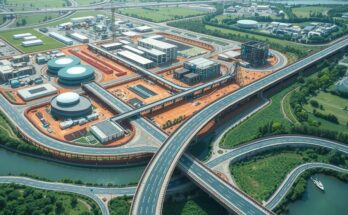Goma, a city in eastern DR Congo, is under the control of the M23 rebel group following violent clashes that resulted in significant casualties. The humanitarian situation is critical, with hospitals overwhelmed by injured civilians, and reports of rising violence against women. Residents exhibit a mix of fear and acceptance, while the Congolese government contends the legitimacy of the M23’s control. The region’s future remains precarious as the rebels express intentions to expand their influence further south.
Upon my arrival in Goma, a city in eastern DR Congo, the bustling streets suggested normalcy amid its conflict zone reality. Residents engaged in daily routines, yet signs of control by the M23 rebel group quickly surfaced. These fighters, having recently captured Goma, enforced their presence at checkpoints, overshadowing the city’s prior governance by Congolese authorities.
The M23’s advance has incited violence, resulting in significant casualties, with at least 700 fatalities and approximately 3,000 injuries reported due to clashes with the national military. Claiming to defend the rights of ethnic Tutsis, the rebels are simultaneously accused by the Congolese government of seeking to exploit the region’s mineral resources. The humanitarian toll is evident as hospitals struggle to accommodate the influx of injured civilians.
In one hospital, Dr. Nathaniel Cirho recounted his injury from shrapnel after a nearby bomb explosion, lamenting the fate of a neighbor who succumbed to their injuries. Nearby, an elderly woman described her harrowing experience of treating her own bullet wound after being shot in her neighborhood, eventually seeking necessary care when escorted by rebel forces. This situation reflects the dire circumstances of medical facilities amidst a humanitarian crisis.
With the escalation of violence, hospitals are facing overwhelming patient loads. One doctor detailed receiving over 700 injured individuals, experiencing multiple severe traumas, and soaring rates of sexual violence against civilians. Local communities encounter a mix of fear and resignation toward the M23’s governance, as evidenced by a shop owner expressing apprehension over their unpredictable control.
Observations reveal an environment still recovering from chaos, with some businesses reopening while others remain closed. The absence of Congolese soldiers in Goma raises questions about security and the effectiveness of the Congolese army. Witnesses report local troops abandoning their posts, raising concerns about future stability.
The Congolese government continues to challenge the M23’s claims of control, condemning their actions as illegitimate and asserting their intent to reclaim territory. While Rwanda’s denials of support for the rebels have shifted to assertions of national security threats posed by surrounding conflicts, the situation remains precarious. As the M23 advances south towards Bukavu, the potential implications for Goma forecast a troubling future for wider regions in DR Congo.
The context of Goma’s situation stems from ongoing conflicts involving the M23 rebel group, which has challenged the authority of the Congolese government. The area’s geopolitical dynamics are compounded by ethnic tensions and the strategic interests in its mineral resources. The latest developments in Goma highlight a critical humanitarian episode, emphasizing the risks faced by civilians amidst warfare, coupled with the regional implications of foreign involvement.
Goma’s current condition demonstrates the pressing humanitarian crisis and the ramifications of armed conflict in eastern DR Congo. The presence of the M23 rebels poses significant challenges to local governance and security, exacerbating fears among residents. With escalating violence and a deteriorating healthcare situation, the future for Goma and its citizens remains uncertain, necessitating urgent attention from regional and international stakeholders.
Original Source: www.bbc.co.uk




